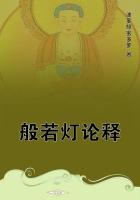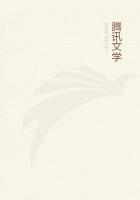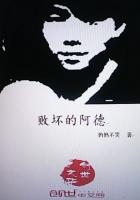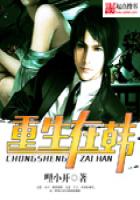But the matter for important comment was here: that when I first went out into the mental atmosphere of the modern world, I found that the modern world was positively opposed on two points to my nurse and to the nursery tales. It has taken me a long time to find out that the modern world is wrong and my nurse was right.
The really curious thing was this: that modern thought contradicted this basic creed of my boyhood on its two most essential doctrines.
I have explained that the fairy tales founded in me two convictions; first, that this world is a wild and startling place, which might have been quite different, but which is quite delightful; second, that before this wildness and delight one may well be modest and submit to the queerest limitations of so queer a kindness. But I found the whole modern world running like a high tide against both my tendernesses; and the shock of that collision created two sudden and spontaneous sentiments, which I have had ever since and which, crude as they were, have since hardened into convictions.
First, I found the whole modern world talking scientific fatalism; saying that everything is as it must always have been, being unfolded without fault from the beginning. The leaf on the tree is green because it could never have been anything else. Now, the fairy-tale philosopher is glad that the leaf is green precisely because it might have been scarlet. He feels as if it had turned green an instant before he looked at it. He is pleased that snow is white on the strictly reasonable ground that it might have been black.
Every colour has in it a bold quality as of choice; the red of garden roses is not only decisive but dramatic, like suddenly spilt blood.
He feels that something has been DONE. But the great determinists of the nineteenth century were strongly against this native feeling that something had happened an instant before. In fact, according to them, nothing ever really had happened since the beginning of the world. Nothing ever had happened since existence had happened; and even about the date of that they were not very sure.
The modern world as I found it was solid for modern Calvinism, for the necessity of things being as they are. But when I came to ask them I found they had really no proof of this unavoidable repetition in things except the fact that the things were repeated.
Now, the mere repetition made the things to me rather more weird than more rational. It was as if, having seen a curiously shaped nose in the street and dismissed it as an accident, I had then seen six other noses of the same astonishing shape. I should have fancied for a moment that it must be some local secret society.
So one elephant having a trunk was odd; but all elephants having trunks looked like a plot. I speak here only of an emotion, and of an emotion at once stubborn and subtle. But the repetition in Nature seemed sometimes to be an excited repetition, like that of an angry schoolmaster saying the same thing over and over again.
The grass seemed signalling to me with all its fingers at once; the crowded stars seemed bent upon being understood. The sun would make me see him if he rose a thousand times. The recurrences of the universe rose to the maddening rhythm of an incantation, and I began to see an idea.
All the towering materialism which dominates the modern mind rests ultimately upon one assumption; a false assumption. It is supposed that if a thing goes on repeating itself it is probably dead; a piece of clockwork. People feel that if the universe was personal it would vary; if the sun were alive it would dance. This is a fallacy even in relation to known fact. For the variation in human affairs is generally brought into them, not by life, but by death; by the dying down or breaking off of their strength or desire.
A man varies his movements because of some slight element of failure or fatigue. He gets into an omnibus because he is tired of walking; or he walks because he is tired of sitting still. But if his life and joy were so gigantic that he never tired of going to Islington, he might go to Islington as regularly as the Thames goes to Sheerness.
The very speed and ecstasy of his life would have the stillness of death. The sun rises every morning. I do not rise every morning; but the variation is due not to my activity, but to my inaction.
Now, to put the matter in a popular phrase, it might be true that the sun rises regularly because he never gets tired of rising.
His routine might be due, not to a lifelessness, but to a rush of life. The thing I mean can be seen, for instance, in children, when they find some game or joke that they specially enjoy. A child kicks his legs rhythmically through excess, not absence, of life.
Because children have abounding vitality, because they are in spirit fierce and free, therefore they want things repeated and unchanged.
They always say, "Do it again"; and the grown-up person does it again until he is nearly dead. For grown-up people are not strong enough to exult in monotony. But perhaps God is strong enough to exult in monotony. It is possible that God says every morning, "Do it again" to the sun; and every evening, "Do it again" to the moon.
It may not be automatic necessity that makes all daisies alike; it may be that God makes every daisy separately, but has never got tired of making them. It may be that He has the eternal appetite of infancy; for we have sinned and grown old, and our Father is younger than we.
The repetition in Nature may not be a mere recurrence; it may be a theatrical ENCORE. Heaven may ENCORE the bird who laid an egg.
If the human being conceives and brings forth a human child instead of bringing forth a fish, or a bat, or a griffin, the reason may not be that we are fixed in an animal fate without life or purpose.
It may be that our little tragedy has touched the gods, that they admire it from their starry galleries, and that at the end of every human drama man is called again and again before the curtain.















